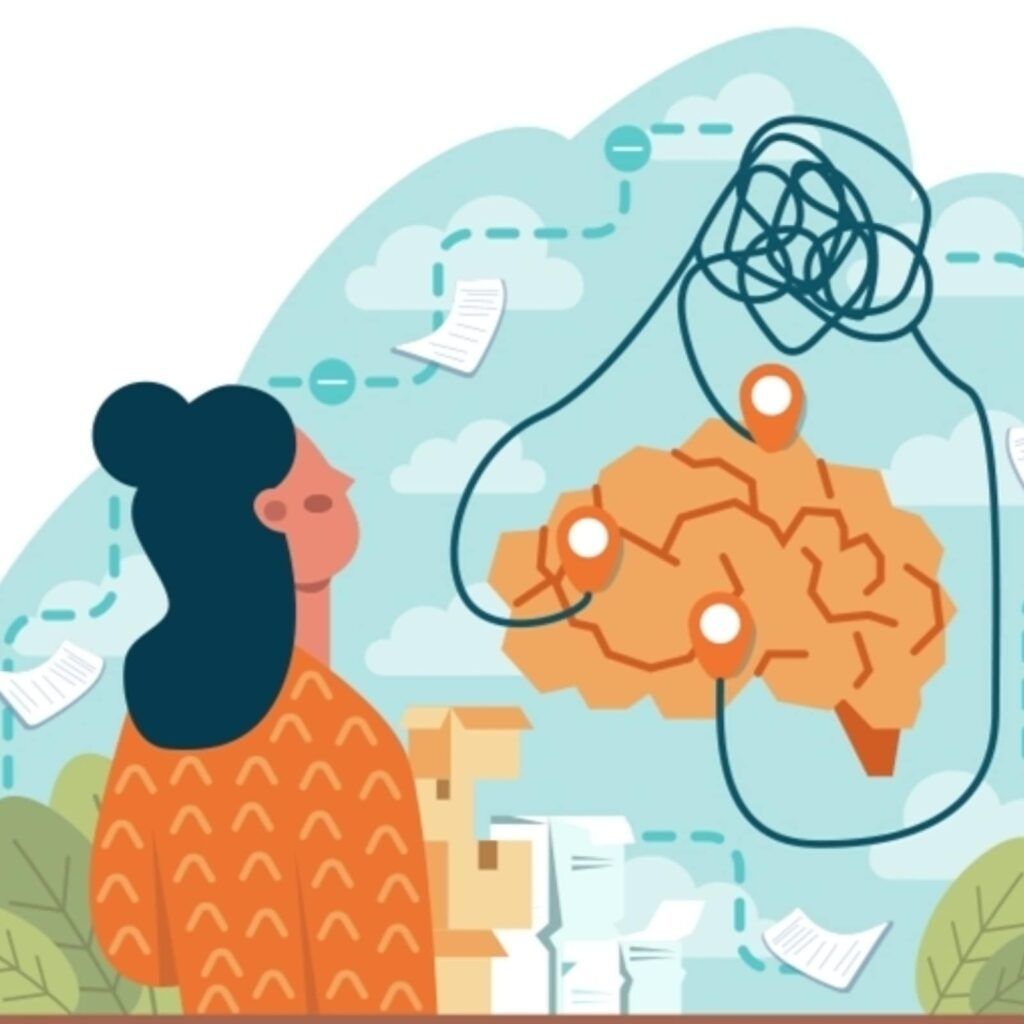In New York City, a hub for high achievers in finance, technology, consulting, and healthcare, the relentless pace of success often leads to a need for introspection. Psychodynamic therapy at Uncover Mental Health Counseling offers a deep exploration of the subconscious, addressing how past experiences influence current emotions, thoughts, and behaviors.

Symptoms Addressed by Psychodynamic Therapy
At Uncover Mental Health Counseling in NYC, psychodynamic therapy is here to address the roots of your challenges that have led to the following symptoms:
- Feelings of emptiness or unfulfillment
- Excessive anxiety
- Relationship difficulties
- Self-destructive behavior
- Unresolved traumas from the past
- Patterns of failed relationships
- Feelings of detachment
The Necessity of Psychodynamic Therapy in NYC
Amidst the hustle and bustle of NYC, psychodynamic therapy goes beyond temporary fixes and emerges as a compass for lasting transformation. Here’s how:
- In-Depth Understanding: Gaining a comprehensive understanding of oneself, crucial in NYC’s fast-paced environment.
- Lasting Transformation: Facilitating deep, lasting changes rather than temporary fixes.
- Personalized Approach: Tailoring therapy to each individual’s unique experiences in a diverse city.
- Holistic Well-being: Promoting overall well-being, balancing external success with internal harmony.
Unique Challenges High Achievers Face
Behind high achievers’ impeccable façades and impressive resumes, there are unique challenges that can take a toll on your well-being which is why you might consider seeking psychodynamic therapy in NYC.
Intense Pressure to Succeed.
As a high achiever, you might be under enormous pressure to consistently produce extraordinary outcomes because of the intense competition in the city and your respective fields. Stress, worry, and a continuous quest for perfection can often result from this pressure.
Imposter Syndrome.
High achievers frequently struggle with imposter syndrome so you might experience a persistent worry of being seen as a fraud, despite your successes and overall wins. You might experience self-doubt, minimize your accomplishments, and have this persistent fear of being “found out.”
Work-Life Imbalance.
High achievers might prioritize success leaving little room for hobbies, self-care, and relationships. Due to inability to balance your personal and professional goals, you may feel guilty, unhappy, and unfulfilled.
Fear of Failure.
Failure is perceived as a significant setback for high achievers. The fear of falling short of your own expectations, societal pressures, or disappointing others can create immense anxiety and hinder your ability to take risks or embrace new opportunities.
Difficulty with Vulnerability.
High achievers typically have a tendency to demonstrate confidence and competence. You may find it hard to open up about your struggles, share your worries, or tell people about your emotional needs which actually disconnects you from both yourself and other people.
Perfectionism and Self-Criticism.
A high achiever frequently holds themselves to extremely high standards and constantly aspires to be regarded as successful but this occasionally puts a lot of pressure on you. You might always be critical of your performance, constantly think about your shortcomings, and struggle to recognize your wins which might lead to self-doubt, exhaustion, low self-esteem, and a persistent sense that you’re not good enough.
Treatment Process at Uncover Mental Health Counseling
At Uncover Mental Health Counseling, your mental health journey is crafted just for you. Gain insight, empowerment, and continuous support in a personalized therapy approach that ensures your unique needs are at the forefront of your healing journey. Here’s how we make it happen using psychodynamic therapy:
- Initial Assessment: A safe space to understand individual challenges and set therapy goals.
- Self-Exploration: Engaging in open conversations to stimulate self-reflection and uncover underlying factors.
- Unearthing Patterns: Identifying and understanding recurring patterns and their impact.
- Healing and Growth: Addressing unresolved issues for emotional freedom and growth.
- Insight and Empowerment: Gaining self-awareness for conscious decision-making and embracing authenticity.
- Ongoing Support: Continuous support and guidance throughout the therapy journey.
- Personalized Approach: Ensuring each individual’s therapy path is tailored to their specific needs.
Guarding Against Future Distress
At Uncover Mental Health Counseling, we envision psychodynamic therapy as a proactive shield against future distress. Here’s how we help our clients not only thrive in the fast-paced city but proactively build a resilient foundation for lasting well-being.
- Self-Awareness: Recognizing behavioral triggers and root causes of emotional reactions.
- Improved Coping Strategies: Learning healthier ways to manage emotions.
- Better Decision-Making: Making informed choices based on newfound self-awareness.
- Resilience: Developing emotional resilience against life’s challenges.
- Improved Relationships: Enhancing communication and relationship skills.
- Preventive Strategies: Implementing measures to safeguard mental health.

Seek Healing with Psychodynamic Therapy: Contact Us Today
If you or someone you know could benefit from psychodynamic therapy, don’t hesitate to reach out. Our dedicated team at Uncover Mental Health Counseling is here to guide you on this journey of self-discovery and healing. Contact us at (646) 868-8480 or email us at info@uncovercounseling.com. While we specialize in psychodynamic therapy, we also offer Cognitive Behavioral Therapy for a variety of concerns.
Psychodynamic Therapy in NYC: Frequently Asked Questions
What is psychodynamic therapy?
Psychodynamic therapy is a form of therapy that focuses on understanding unconscious processes and how these influence current behaviors, emotions, and thoughts. Rooted in psychoanalysis, it emphasizes exploring early life experiences and understanding how they affect the present.
How does psychodynamic therapy differ from Cognitive Behavioral Therapy (CBT)?
While both are effective therapeutic methods, psychodynamic therapy delves into unconscious processes and early life experiences to understand present behaviors. In contrast, CBT focuses on identifying and correcting negative thought patterns and behaviors to address current challenges.
How long does psychodynamic therapy usually last?
The duration of psychodynamic therapy varies depending on the individual's needs and the nature of the issues being addressed. Some might benefit from short-term therapy, while others might engage in the process for a more extended period. Regular assessments with your therapist at Uncover Mental Health Counseling will determine the best course of action for you.
Do I have to talk about my childhood in psychodynamic therapy?
In psychodynamic therapy, while childhood experiences can indeed be explored, it's essential to understand that you have full agency over what you choose to discuss. Your therapist follows a collaborative approach, working closely with you to determine which aspects of your past are most pertinent to your therapeutic journey. The focus on childhood experiences is not a requirement but an option. You and your therapist will decide together what aspects of your history are most relevant to achieving your therapeutic goals. This flexibility ensures that your therapy is a customized and comfortable experience that respects your boundaries and preferences.
Is psychodynamic therapy suitable for everyone?
Psychodynamic therapy is a versatile approach that can benefit a wide range of individuals. However, it tends to be particularly helpful for those who desire a deeper understanding of themselves, their relationships, and the impact of their past experiences on their present life. It's especially well-suited for individuals who are open to self-exploration and ready to gain insights into their inner world. If you're someone who values introspection, is willing to engage in meaningful self-reflection, and seeks to uncover the underlying factors that influence your thoughts and behaviors, psychodynamic therapy can be a powerful and transformative tool for you.
What can I expect in a typical psychodynamic therapy session?
During a psychodynamic therapy session, you'll engage in open, honest, and confidential conversations with your therapist. These conversations are thoughtfully designed to encourage self-reflection and exploration. You'll have the opportunity to delve into your thoughts, emotions, and behaviors, guided by your therapist's expertise. The goal of each session is to gain valuable insights into your inner world, personal history, and the factors that might be influencing your current life. These insights are essential for personal growth and healing. Your therapist will work collaboratively with you, helping you to set and work toward your therapeutic objectives, and providing the support and guidance you need as you navigate the journey of self-discovery and transformation.




























